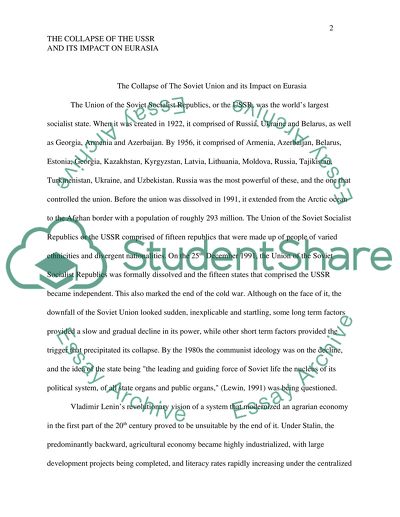Cite this document
(“Paper on The Collapse of the Soviet Union and Its Impact on Eurasia Essay”, n.d.)
Paper on The Collapse of the Soviet Union and Its Impact on Eurasia Essay. Retrieved from https://studentshare.org/miscellaneous/1594920-paper-on-the-collapse-of-the-soviet-union-and-its-impact-on-eurasia
Paper on The Collapse of the Soviet Union and Its Impact on Eurasia Essay. Retrieved from https://studentshare.org/miscellaneous/1594920-paper-on-the-collapse-of-the-soviet-union-and-its-impact-on-eurasia
(Paper on The Collapse of the Soviet Union and Its Impact on Eurasia Essay)
Paper on The Collapse of the Soviet Union and Its Impact on Eurasia Essay. https://studentshare.org/miscellaneous/1594920-paper-on-the-collapse-of-the-soviet-union-and-its-impact-on-eurasia.
Paper on The Collapse of the Soviet Union and Its Impact on Eurasia Essay. https://studentshare.org/miscellaneous/1594920-paper-on-the-collapse-of-the-soviet-union-and-its-impact-on-eurasia.
“Paper on The Collapse of the Soviet Union and Its Impact on Eurasia Essay”, n.d. https://studentshare.org/miscellaneous/1594920-paper-on-the-collapse-of-the-soviet-union-and-its-impact-on-eurasia.


